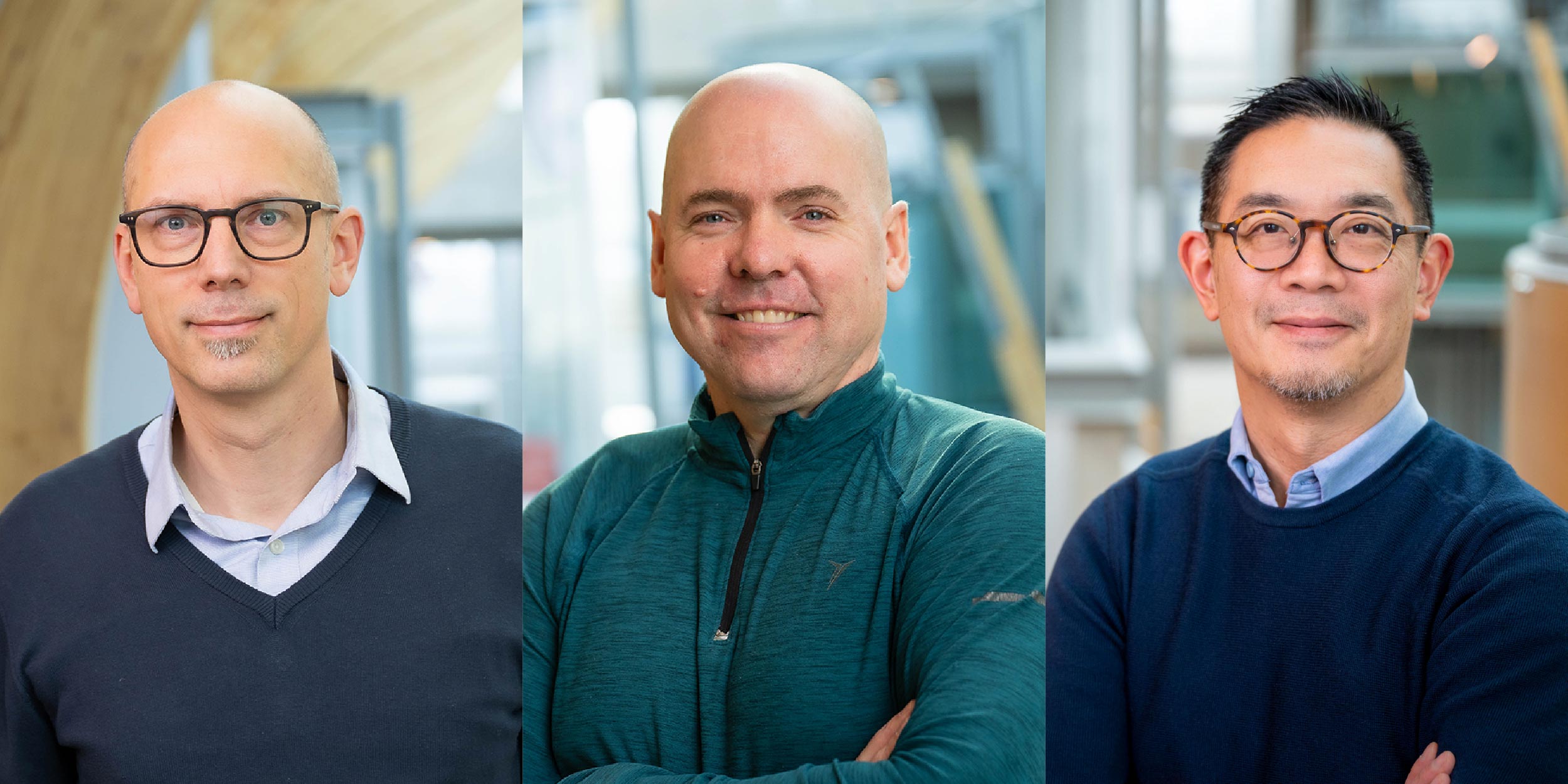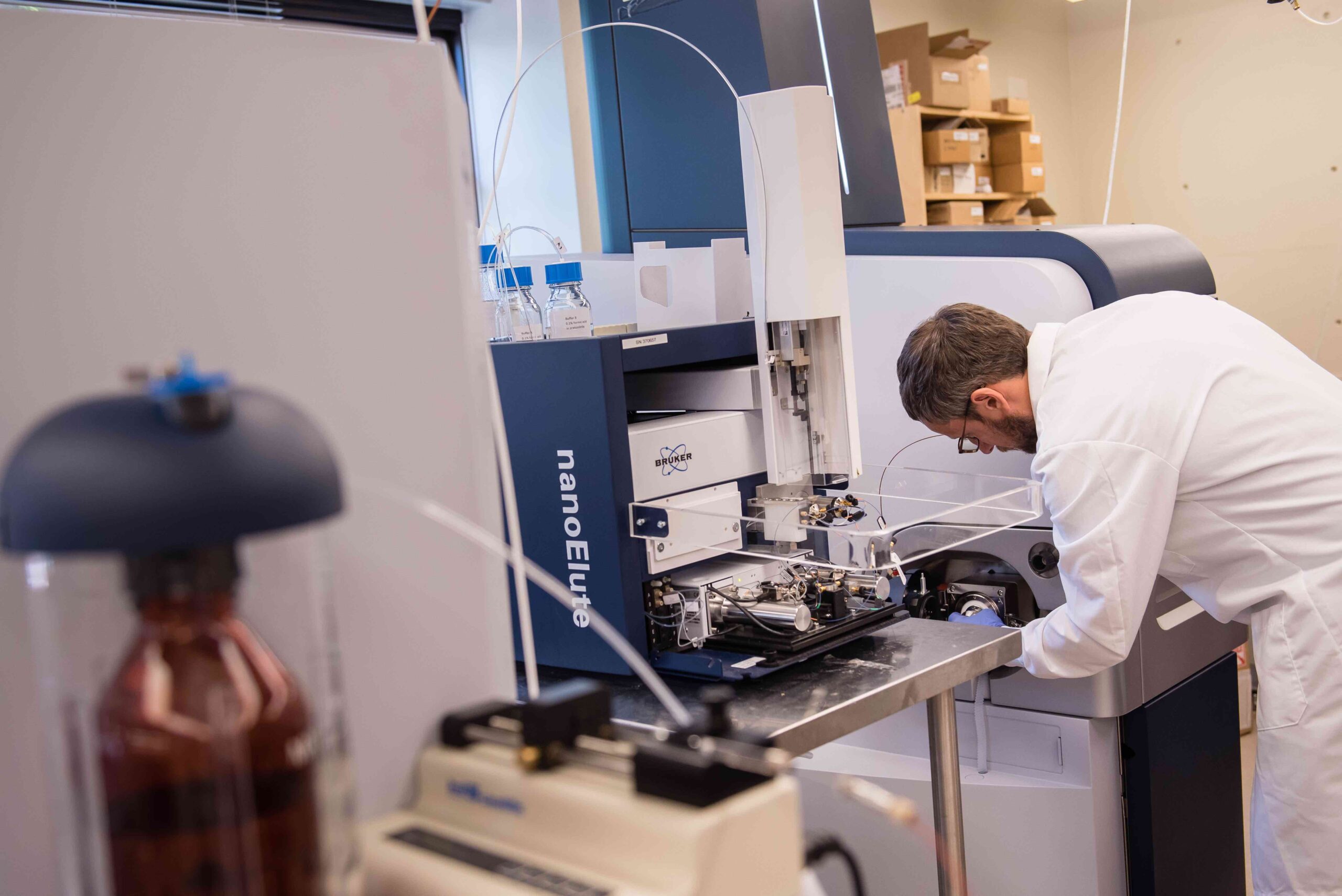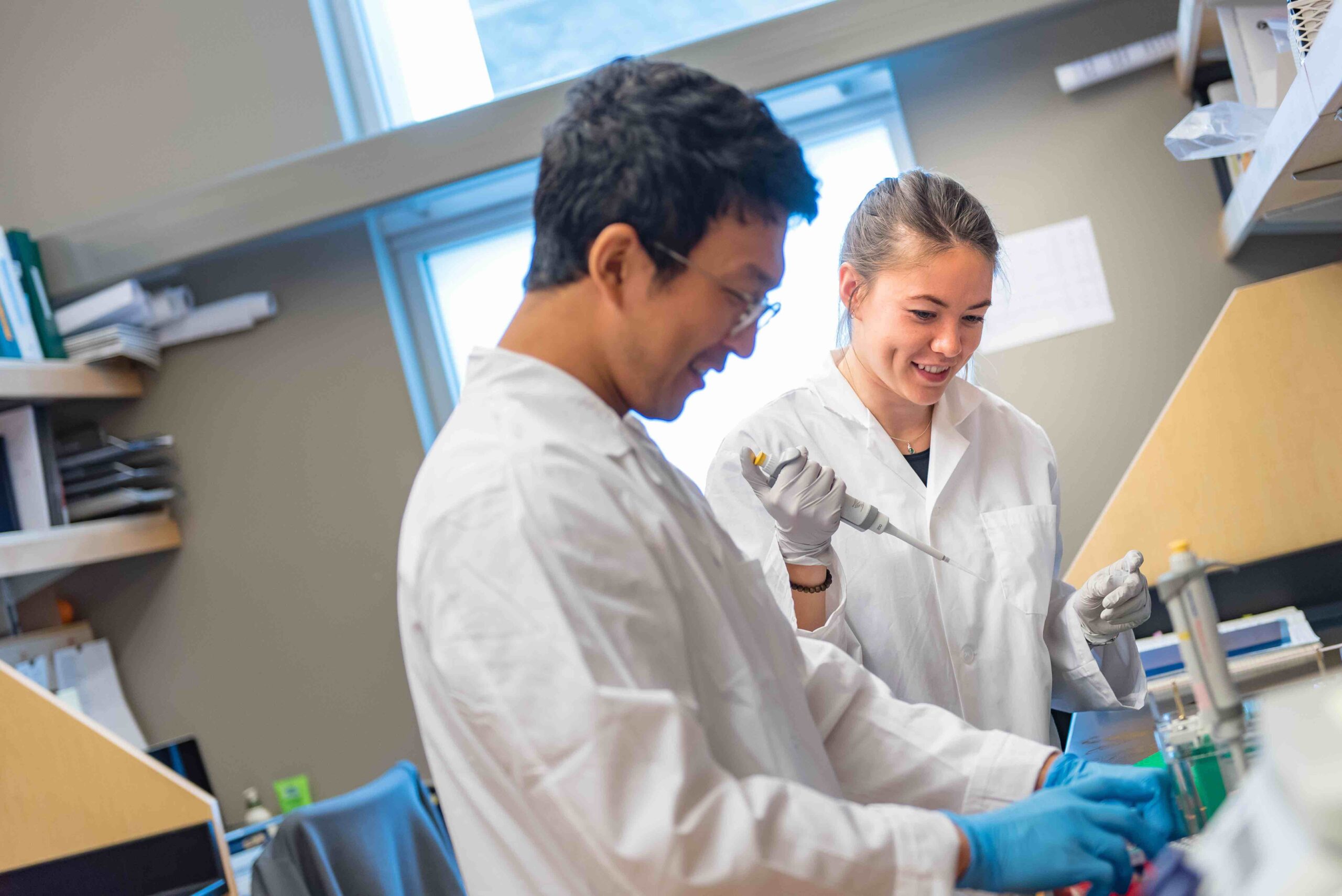Awards and recognition
Dr. Thibault Mayor and collaborators receive $1.65 million for mass spectrometry training program focused on collaboration

Drs. Thibault Mayor (left), Leonard Foster (centre) and David Ng (right).
Dr. Thibault Mayor (MSL, Biochemistry & Molecular Biology), together with a large team of collaborators including MSL’s Dr. Leonard Foster and Dr. David Ng, is launching a new interdisciplinary graduate training program in mass spectrometry (MS) with a focus on teamwork. The program is supported by $1.65 million in funding over six years, awarded through the 2025 NSERC Collaborative Research and Training Experience (CREATE) program, as well as support from universities, research institutes, and hospitals across BC.
The NSERC CREATE program supports training initiatives that emphasize collaboration and prepare trainees for entering the Canadian workforce by fostering both technical and professional skills. The Mass Spectrometry Team Training and Transition (MaST3) CREATE program builds on this mandate by equipping graduate students with advanced technical expertise in mass spectrometry, alongside essential professional competencies such as teamwork, leadership, communication, and adaptability. MaST3 also prioritizes equity, diversity, and inclusion, and includes community outreach activities.
“We have a fantastic network of research labs and facilities equipped with state-of-the-art instrumentation across the province. We aim to leverage this infrastructure to enhance student versatility and adaptability by showcasing how our technologies can be applied across diverse methods and research areas,” describes Dr. Mayor. “Overall, this program will help better prepare our students for careers in biotechnology, academia and the public sector.”
The program will take a unique approach to training by having students work on team-based projects, rather than individual theses. Students will also have the opportunity to participate in a variety of development activities ranging from workshops, to symposium presentations, to lab visits and community outreach. Older students in the program will also act as mentors to incoming students, all while being overseen by expert faculty members.

“For nearly 150 years, the PhD model has largely relied on individual graduate students shaping and developing their research projects independently, a model that is increasingly disconnected from today’s collaborative research environment,” highlights Dr. Mayor. “With MaST3, we aim to offer a different experience by engaging students in team-based mini-projects centred on mass spectrometry. We will also equip them with the tools they need to work effectively in teams and to mentor their peers.”
By focusing not just on technical skills, but other essential professional skills as well, this program promises to prepare cohorts of mass spectrometry experts to successfully advance to the next stages of their scientific careers.
The MaST3 program will soon be accepting applications from graduate students interested in enrolling. If you would like more information about this program, please reach out to Program Coordinator Dr. Nancy Fang at nancy.fang@ubc.ca.
Quick Links: